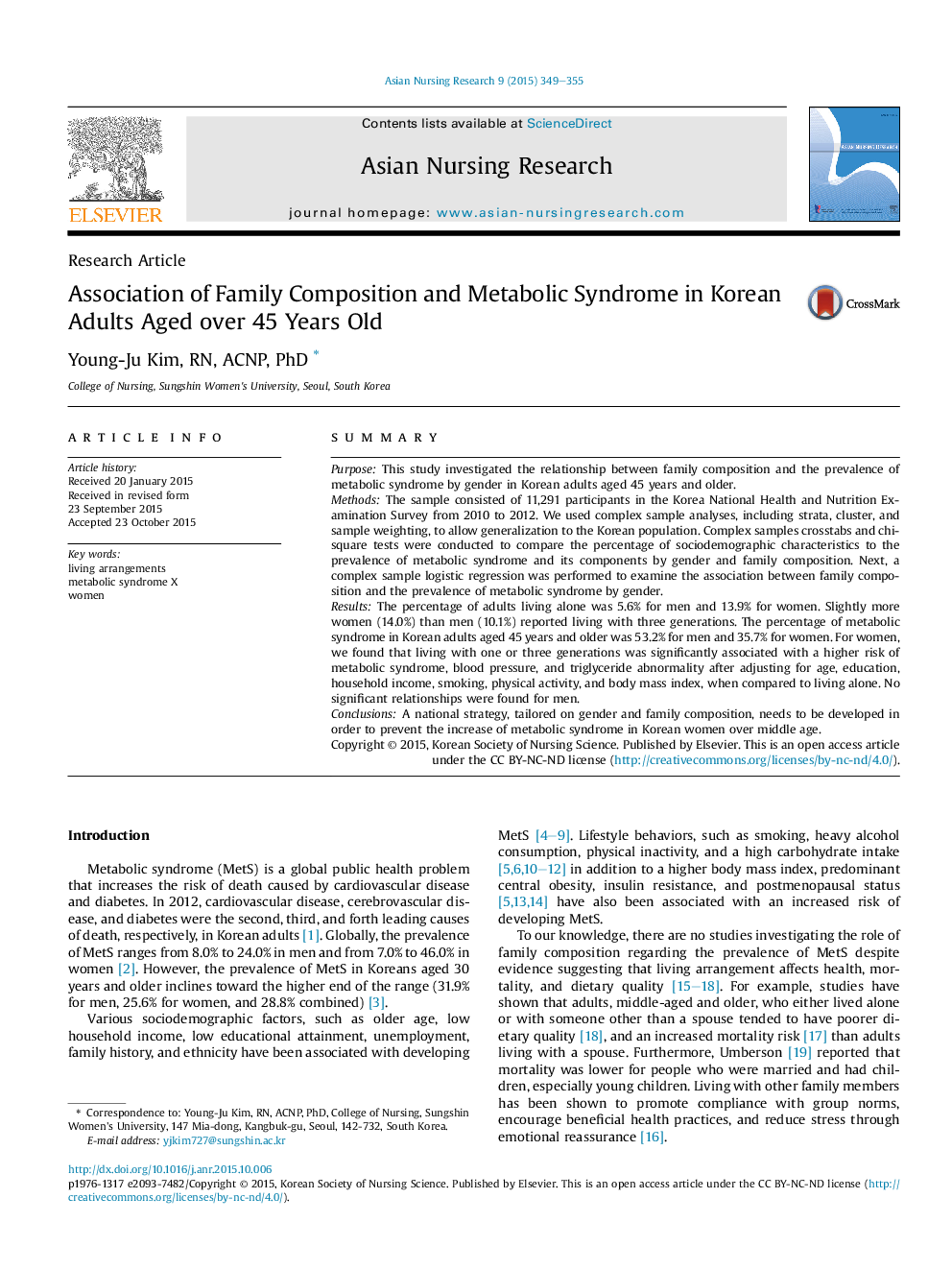| Article ID | Journal | Published Year | Pages | File Type |
|---|---|---|---|---|
| 2645523 | Asian Nursing Research | 2015 | 7 Pages |
SummaryPurposeThis study investigated the relationship between family composition and the prevalence of metabolic syndrome by gender in Korean adults aged 45 years and older.MethodsThe sample consisted of 11,291 participants in the Korea National Health and Nutrition Examination Survey from 2010 to 2012. We used complex sample analyses, including strata, cluster, and sample weighting, to allow generalization to the Korean population. Complex samples crosstabs and chi-square tests were conducted to compare the percentage of sociodemographic characteristics to the prevalence of metabolic syndrome and its components by gender and family composition. Next, a complex sample logistic regression was performed to examine the association between family composition and the prevalence of metabolic syndrome by gender.ResultsThe percentage of adults living alone was 5.6% for men and 13.9% for women. Slightly more women (14.0%) than men (10.1%) reported living with three generations. The percentage of metabolic syndrome in Korean adults aged 45 years and older was 53.2% for men and 35.7% for women. For women, we found that living with one or three generations was significantly associated with a higher risk of metabolic syndrome, blood pressure, and triglyceride abnormality after adjusting for age, education, household income, smoking, physical activity, and body mass index, when compared to living alone. No significant relationships were found for men.ConclusionsA national strategy, tailored on gender and family composition, needs to be developed in order to prevent the increase of metabolic syndrome in Korean women over middle age.
